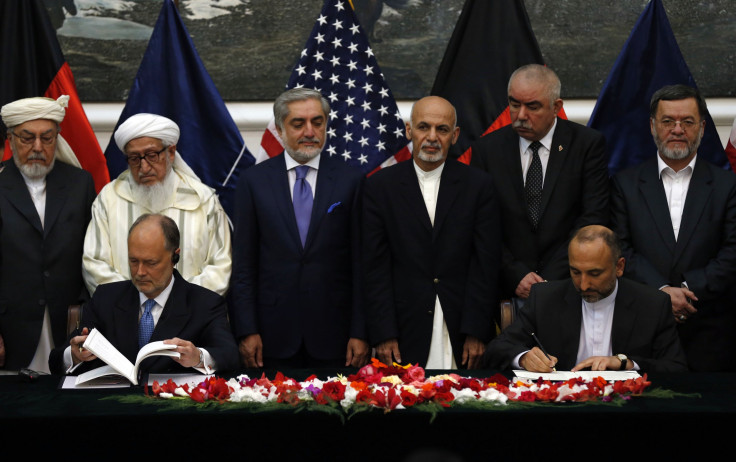Afghanistan’s Economy: Are Minerals The Key To Development?

As a Western-educated former World Bank economist, Afghanistan's new president was elected partly on the hope that he can help resurrect the war-torn country's feeble economy. But on the day Ashraf Ghani was sworn into office, the country's first democratic transition, a suicide bomber killed seven people at a security checkpoint near Kabul, with the Taliban claiming responsibility, reinforcing the security challenges he faces that impede economic development.
Ghani has brought the issue to the forefront, promoting the country's vast natural resources as the key to development. But in order to attract investors, experts say he'll need to make some big changes.
“It is hard to overstate the importance of fighting corruption. Far from being just a moral or legal issue, better governance is absolutely central to the efforts both to boost the economy and to create a lasting stability in Afghanistan,” notes Jodi Vittori, Afghanistan adviser at Global Witness, an NGO that investigates economic networks behind conflict, corruption and environmental destruction.
Afghanistan is currently tied with Somalia and North Korea as the most corrupt country in the world, according to Transparency International’s Corruption Perceptions Index.
“Such high levels of corruption like those assessed to be in Afghanistan literally clog the wheels of the entire legitimate economy,” Vittori said.
The problems were evident during the election itself. Ghani’s inauguration comes after five months of increasing tensions that worried international observers and investors. About 60 percent of the country’s national budget is funded by the U.S. and other donors, according to Bloomberg. Last year the government raised $2 billion in revenues, less than a third of what it needs.
“The election dispute paralyzed Afghanistan’s economy as investors hesitated to enter the market,” reads a note from the Soufan Group, a consultancy firm. “The accession of the new leaders could encourage donors to cover the deficit and would likely revive the Afghan economy at least in the short term,” it says.
For example, a billion-dollar agreement between the Afghan government and China’s biggest mining company to develop a massive copper mine has been put on hold amid growing security concerns.
On Tuesday, Afghanistan and the United States signed the Bilateral Security Agreement, which will allow some American troops to stay in the country after this year, in part to train local troops to combat Taliban forces. It’s meant to bring stability after five months of political tensions that may help fix the problem with investor confidence.
“From an economic perspective, the BSA will help Afghanistan attract aid and financial cooperation,” government employee Abdul Wahid Frogh, told the Washington Post. “As well, the BSA assures Afghan people that the international community will not let us go forward on our own, and this assurance will lead to an economic boom.”
In theory, Afghanistan’s new government should be able to leverage its massive mineral reserves -- worth an estimated $3 trillion according to the World Bank -- to pull up the economy.
“The rich mineral resources in Afghanistan can transform the country into an industrial nation,” Ghani said after being sworn in Monday in Kabul. “We broadly depend on imports and foreign assistance, and we aim to create a sound economic system for the country to stimulate exports and develop economy.”
If all goes well, a thriving extractives industry could provide steady jobs, foreign investment and create a middle class of skilled workers. But it isn’t that simple.
“A reliance on natural resources in the absence of strong governance, especially in fragile states with weak institutions, can in fact do far more harm than good,” Vittori said.
Afghanistan has already experienced resource-fueled conflict. This summer, the United Nations reported that illegal marble mining was the second-largest source of Taliban financing in Helmand province, where the group runs 25 to 30 illegal quarries. Integrity Watch Afghanistan has found that chromite mines in Kunar province are financing local insurgents.
“Natural resources will be especially important to sustainable economic development over the long term, and improving transparency and governance in that sector will be especially crucial,” Vittori said.
But even if the new president follows through on his plans, the process isn’t going to be quick. Afghanistan will be dependent on foreign aid for some time, even with drastic changes.
“Despite economic development initiatives, Afghanistan will remain dependent on foreign aid for many years,” reads a July report from the Congressional Research Service.
Between 2001 and 2013, the United States contributed $93 billion in assistance to Afghanistan, according to the report, with another $6.1 billion this year and $4.5 billion proposed for next year, not including the costs of military operations.
© Copyright IBTimes 2024. All rights reserved.












